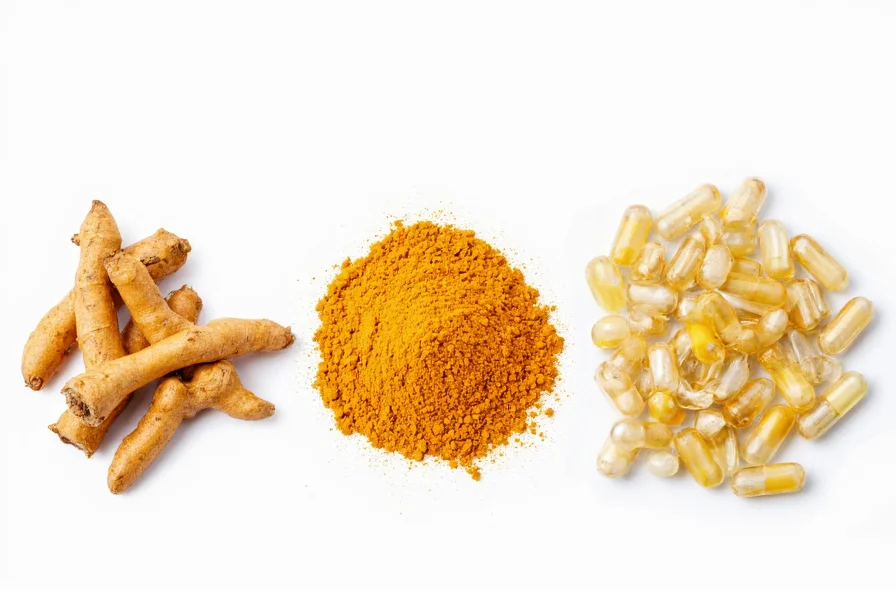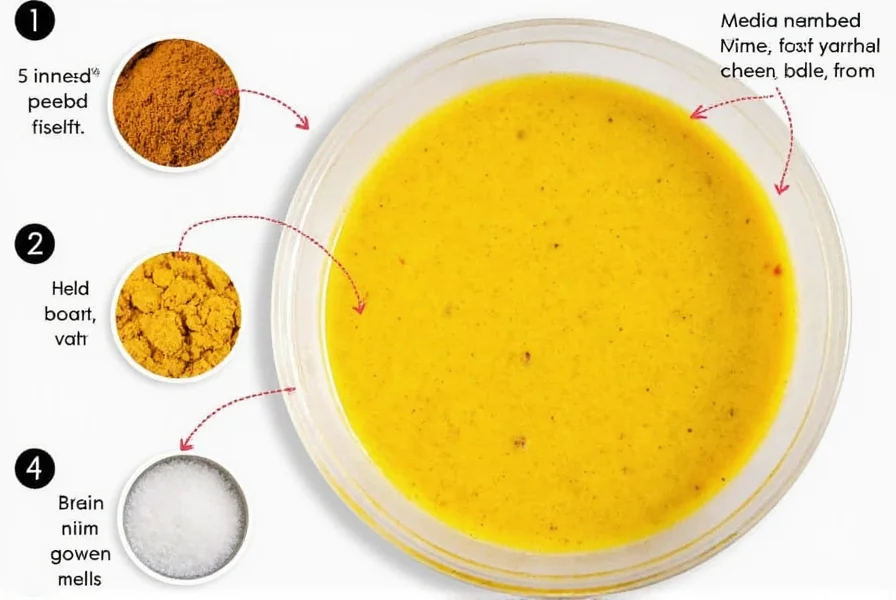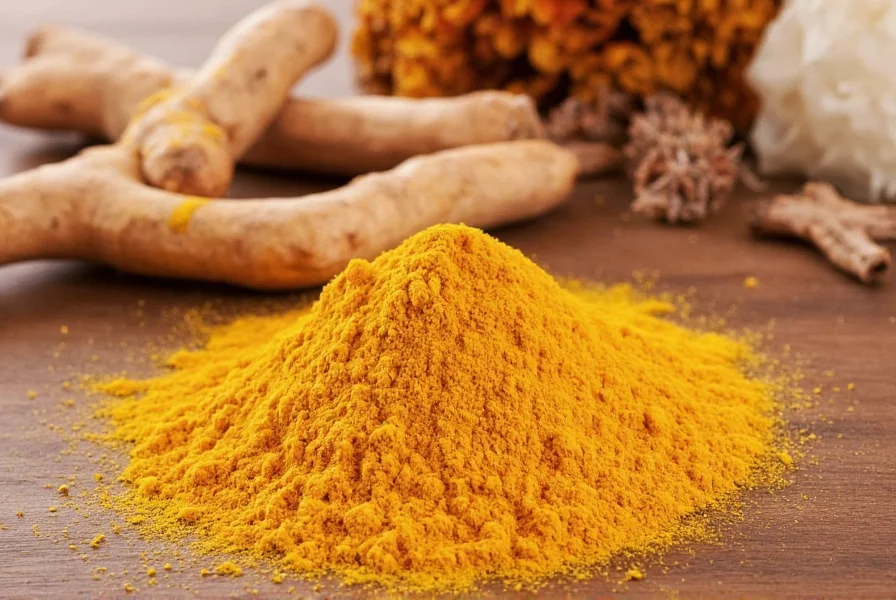Based on current scientific evidence, the recommended daily turmeric dosage for most adults is 500-2,000 mg of curcumin (the active compound in turmeric), typically divided into multiple doses. For culinary use, 1-3 grams of turmeric powder per day is considered safe. Always consult with a healthcare provider before starting turmeric supplementation, especially if you have medical conditions or take medications.
When exploring how much turmeric each day you should consume, it's essential to understand that the optimal amount depends on several factors including your health goals, the form of turmeric you're using, and your individual health status. Turmeric contains curcumin, which makes up about 2-8% of the spice and is responsible for most of its health benefits.
Understanding Turmeric and Curcumin Content
Not all turmeric products contain equal amounts of curcumin, which directly impacts daily turmeric dosage for inflammation and other health benefits. Here's what you need to know about different forms:
| Form of Turmeric | Typical Curcumin Content | Recommended Daily Amount |
|---|---|---|
| Raw turmeric root | 2-5% curcumin | 1-3 inches (2.5-7.5 cm) |
| Turmeric powder (culinary) | 3-6% curcumin | 1-3 grams (½-1½ teaspoons) |
| Standardized curcumin extract | 95% curcumin | 500-1,500 mg |
| Enhanced absorption formula | Varies (with piperine or lipids) | 250-500 mg |
Scientific Basis for Turmeric Dosage Recommendations
Research on safe amount of turmeric per day consumption shows that most clinical studies demonstrating health benefits use between 500-2,000 mg of curcumin daily. The World Health Organization suggests an acceptable daily intake of 0-3 mg per kilogram of body weight for curcumin.
For general wellness and anti-inflammatory benefits, many health professionals recommend:
- 500 mg of curcumin extract taken once or twice daily
- 1-3 grams of turmeric powder in food preparation throughout the day
- 1-3 inches of fresh turmeric root in cooking or juicing
Studies examining optimal turmeric dosage for arthritis often use 1,000 mg of curcumin daily, while research on cognitive benefits typically uses 400-500 mg daily.

Factors Influencing Your Personal Turmeric Dosage
Your ideal how much turmeric to take daily amount depends on several individual factors:
Health Goals
Different health objectives require different dosages. For general wellness, culinary amounts may suffice. For specific conditions like joint pain or inflammation, higher supplemental doses may be appropriate under medical supervision.
Formulation and Bioavailability
Curcumin has poor bioavailability on its own. Formulations with black pepper extract (piperine) can increase absorption by up to 2,000%. This means you may need less of an enhanced formula compared to standard turmeric powder.
Individual Health Factors
Certain medical conditions affect how much turmeric you should consume daily. People with gallbladder issues, bleeding disorders, or diabetes should exercise caution. Pregnant and breastfeeding women should stick to culinary amounts only.
Potential Side Effects of Excessive Turmeric Consumption
While turmeric is generally safe at recommended amounts, consuming too much daily turmeric intake limits can cause:
- Digestive issues like nausea and diarrhea
- Increased risk of bleeding, especially when combined with blood thinners
- Lowered blood sugar levels, problematic for diabetics
- Potential interactions with certain medications
The upper limit for turmeric appears to be around 8 grams per day for most adults, but this is well above the therapeutic range and not recommended for regular consumption.
Maximizing Turmeric Benefits Safely
To get the most from your daily turmeric consumption recommendations while staying within safe limits:
- Combine turmeric with black pepper (just 1/20th teaspoon) to boost absorption
- Take turmeric with healthy fats like coconut oil or olive oil
- Divide your daily amount into 2-3 doses throughout the day
- Start with lower amounts and gradually increase to assess tolerance
- Choose products with third-party testing for quality and purity

When to Consult a Healthcare Provider
Before establishing your regular how much turmeric per day is safe routine, consult with a healthcare provider if you:
- Take blood thinners like warfarin
- Have gallbladder problems
- Are scheduled for surgery within the next two weeks
- Have diabetes and take medication to control blood sugar
- Are pregnant or breastfeeding
- Have hormone-sensitive conditions
Healthcare providers can help determine the appropriate personalized turmeric dosage guidelines based on your specific health profile and goals.
Conclusion
Determining how much turmeric each day you should consume requires balancing potential health benefits with safety considerations. For most adults, 500-2,000 mg of curcumin from supplements or 1-3 grams of turmeric powder in food provides significant health benefits without adverse effects. Remember that consistency matters more than high doses - regular moderate consumption yields better results than occasional large amounts. Always prioritize quality sources and consult with a healthcare professional to determine the right daily turmeric intake for your specific needs.
Frequently Asked Questions
Can I take turmeric every day long-term?
Yes, turmeric can be safely consumed daily at recommended amounts. Studies show that doses of 500-1,500 mg of curcumin daily are well-tolerated for periods up to 6-12 months. For long-term daily use beyond one year, consult with a healthcare provider to monitor for any potential effects, especially if you have underlying health conditions or take medications.
What happens if I take too much turmeric daily?
Consuming excessive turmeric (more than 8 grams daily) can cause digestive issues like nausea, diarrhea, and acid reflux. Very high doses may increase bleeding risk, especially when combined with blood thinners, and could potentially cause liver issues in susceptible individuals. Stick to the recommended 500-2,000 mg of curcumin daily to avoid adverse effects while still gaining health benefits.
How much turmeric should I take for inflammation?
For inflammation management, research suggests 1,000 mg of curcumin daily provides significant anti-inflammatory effects. This typically translates to 1-2 capsules of a standardized curcumin supplement (with absorption enhancers) or 3-6 grams of turmeric powder in food. For best results, divide the dose into two servings taken with meals containing healthy fats to enhance absorption.
Is 1 teaspoon of turmeric a day enough?
One teaspoon (about 2 grams) of turmeric powder daily provides approximately 60-120 mg of curcumin, which offers some health benefits but may be insufficient for therapeutic effects. For noticeable anti-inflammatory benefits, most studies use the equivalent of 1-2 teaspoons of turmeric powder 2-3 times daily. If using turmeric primarily for culinary purposes, 1 teaspoon daily is perfectly safe and contributes to overall wellness.
Can I take turmeric with other supplements?
Yes, turmeric generally combines well with many supplements, particularly those that also support inflammation management like omega-3 fatty acids. However, avoid combining turmeric with other blood-thinning supplements like ginkgo biloba, garlic, or high-dose vitamin E without medical supervision. Turmeric may also enhance the effects of certain medications, so consult your healthcare provider before combining with prescription drugs.











 浙公网安备
33010002000092号
浙公网安备
33010002000092号 浙B2-20120091-4
浙B2-20120091-4